How Serpentine architect Frida Escobedo puts her own stamp on rented property
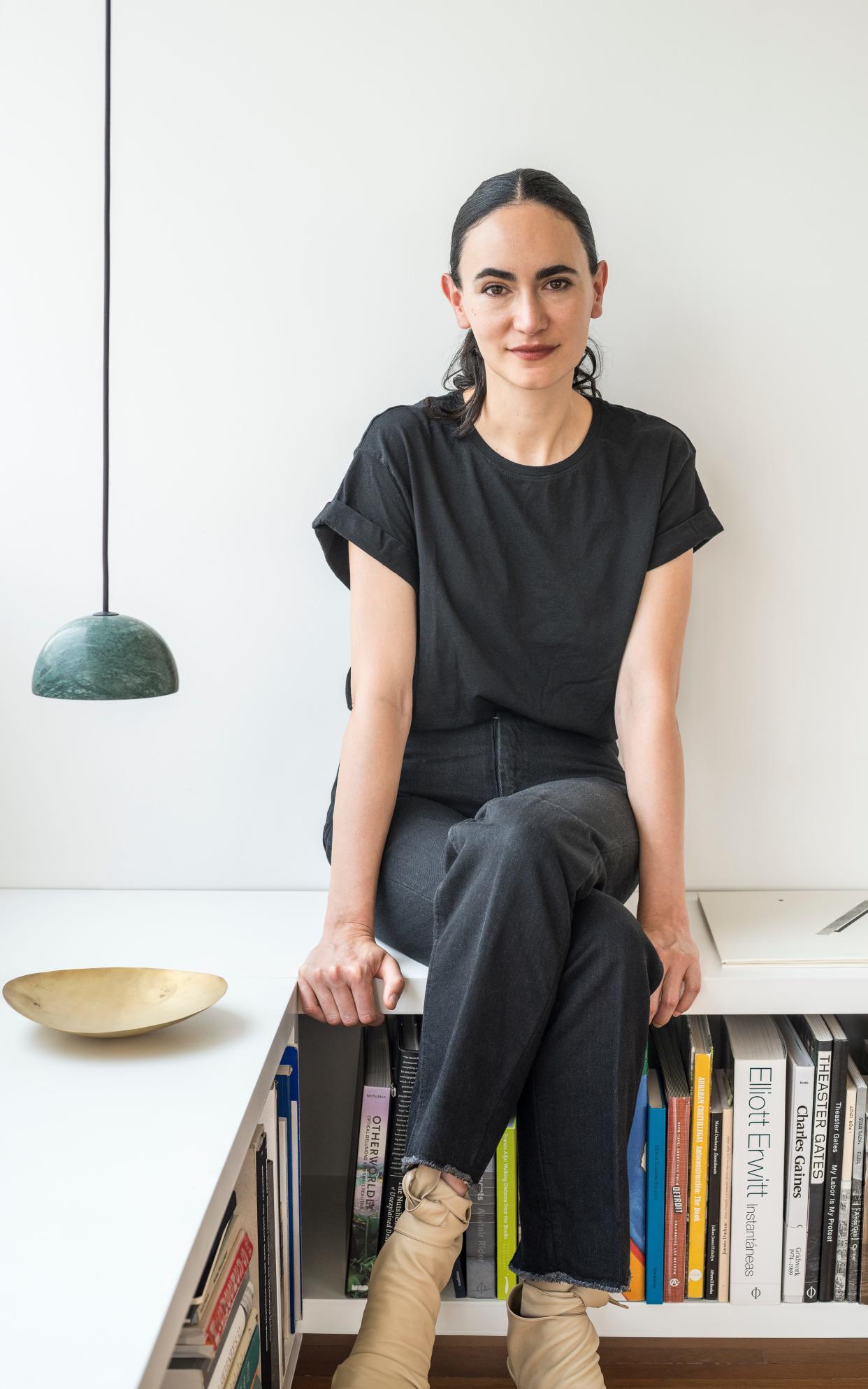
As a breed, architects tend not to enjoy clutter. Even so, the apartment of Mexican architect Frida Escobedo is remarkably spare. 'I don't like to accumulate too much,' she says. 'I have only a few things and every piece is special, either because it was a gift, like the Marcel Breuer Club chair my father gave me when I moved out of home, or something I really love that has been thoughtfully chosen. I don't impulse buy.'
That is not to say the interior is plain. 'The bookshelves are one of the first things I added to the apartment. I constantly rearrange the things on display,' says Escobedo. Artworks are propped here, rather than hung, so they don't dominate the space and can easily be changed.
When combined with the dramatic views of Mexico City from the apartment's many large windows, the decor creates a powerful, yet low-key impression, which is perhaps surprising given Escobedo's status: the 39-year-old is one of Mexico's most important architects. She has received multiple awards and prestigious commissions, and is currently in the spotlight, having created this year's Serpentine Pavilion in London's Kensington Gardens.
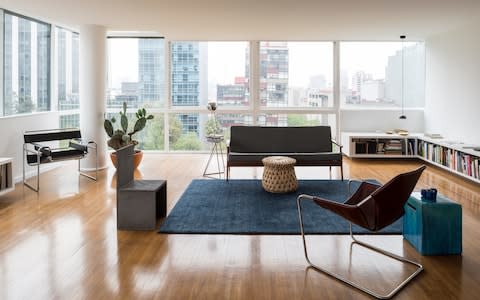
Her design for the pavilion takes the form of an enclosed courtyard, partially covered by a curved mirrored ceiling, with a shallow, triangular pool of water and latticed walls made from stacked British roof tiles that allow in light and colour from the surrounding garden.
'I wanted it to be site-specific, to absorb its context, age well and also to reflect what we do in Mexico, and in our office, such as playing with simple materials to make them more interesting and sophisticated,' she explains. 'The floor plan looks uncomplicated, but when you are inside, you have to explore to make sense of it.'
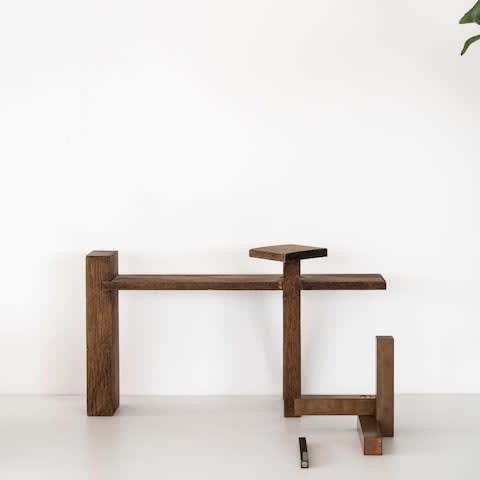
Escobedo is drawn to the challenge of creating public spaces. 'When you design a private house you know how it is going to make the client feel when they are inside, but with a public space it is a leap of faith,' she says. As well as getting feedback from the gallery, she uses Instagram to find out how people are experiencing the pavilion. 'Fortunately it has been well received. People are constantly using it and enjoying it. There is something magical about connecting with people you don't know.'
The pavilion's permanent home is yet to be decided, and this is also true for Escobedo, as her apartment is rented from a friend who has moved to London for work. 'She took the job just as I needed somewhere new to live. So I chose it, but it also found me.'
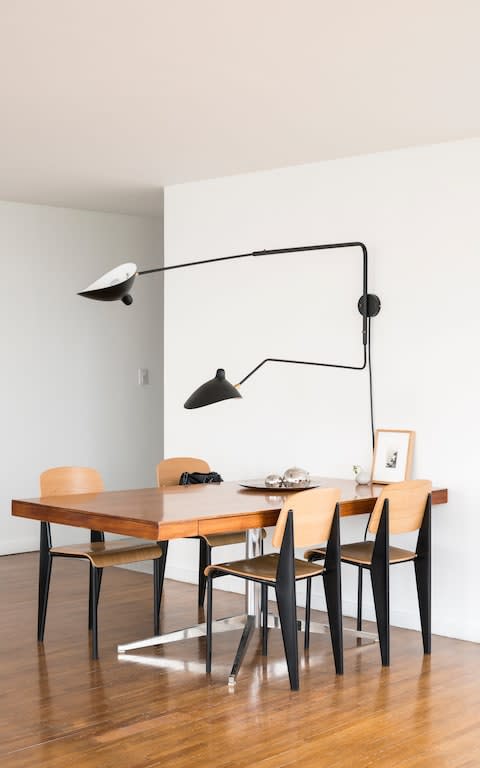
It is in the financial district, so while there's the to-ing and fro-ing of office workers during the week, it's quiet and very peaceful at weekends. By happy coincidence, it's also just one block from the office of her eponymous architectural practice, which is unusual for Mexico City, where a typical commute is over an hour. This means long breakfasts and the freedom to pop back for a quiet coffee at home during the working day.
I don’t like to accumulate too much. I don’t impulse buy. I have only a few things and every piece is special
Also fitting is the building's architectural significance. Designed by modernist Mexican architect Mario Pani, it was one of the city's first condominiums. 'I love the structure. It is organised beautifully,' says Escobedo. One thing she particularly likes is that the bedrooms are located half a floor down from the living spaces, so they feel private. 'A very clever idea,' she says admiringly.
When she first moved in, the apartment was painted white, which she has retained: 'It feels calm and simple and works nicely with the natural light.' The original floor had been preserved, but other elements were raw and unfinished, one striking example being the lack of bathroom fixtures, which she had to add herself. The kitchen cabinets will be her next job: 'The architecture of the apartment is very strong so it will be plain wood, nothing fancy.'
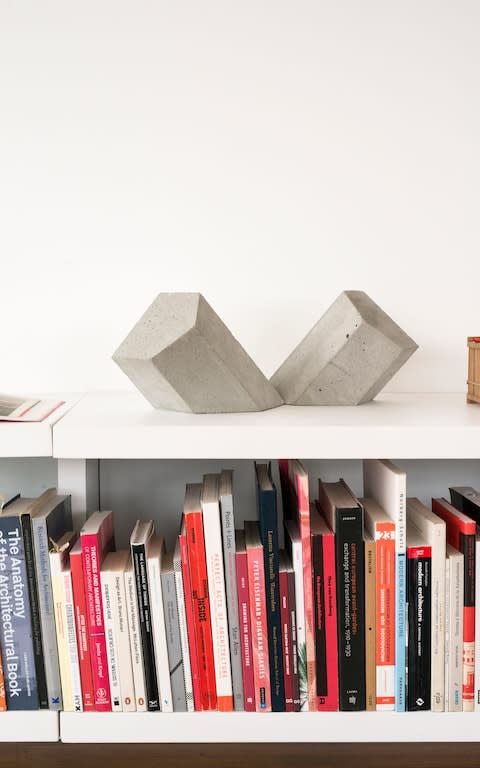
Putting this amount of effort into a property she doesn't own might seem pointless - particularly when she has so many professional projects underway, including two hotels, two private houses and a new line of furniture - but for Escobedo, the renovations are as much a pleasure as a challenge.
'I'm happy they will be there for my friend when she and her family move back in,' she says. For now, she and her boyfriend are making the most of the apartment's attributes as an entertaining space: 'It is becoming a nice place to receive people. We use it a lot, and we share it a lot.'
Frida Escobedo's Serpentine Pavilion is open until 7 October; serpentine galleries.org; fridaescobedo.net
Sign up for the Telegraph Luxury newsletter for your weekly dose of exquisite taste and expert opinion.
